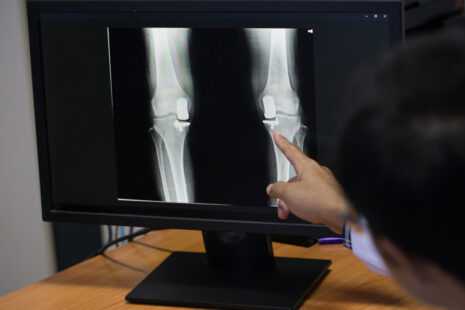Self-therapy begins with understanding, regardless if your muscles need strengthening, relaxation, or coordination.
Start With Body Awareness
Check in with your breath – Place one hand on your belly. Breathe in through your nose & notice if your abdomen gently expands. This helps relax your pelvic floor.
Try a pelvic floor “scan” – While lying down, gently tense & release the muscles you’d use to stop urine or hold in gas. Notice if one side feels tighter or weaker.
Self-Guided Exercises
For Weak Pelvic Floor Muscles
- Try Kegel exercises (but only if your pelvic floor isn’t overactive).
- Sit or lie down comfortably.
- Squeeze the muscles you’d use to stop urinating.
- Hold for 3-5 seconds, then release for the same amount of time.
- Repeat 8-10 times, 1-2 times a day.
Avoid doing Kegels while actually urinating, this can lead to incomplete bladder emptying or infections.
For Tight or Overactive Pelvic Floor Muscles
If you often feel tense or have pelvic pain, relaxation may be more beneficial than strengthening.
- Use diaphragmatic breathing – Breathe deeply into your belly for 4-6 counts, & allow your pelvic floor to relax as you exhale.
- Try child’s pose or happy baby pose – These gentle positions help release tension in your pelvic floor.
Improve Daily Habits
Small lifestyle changes can support your pelvic health…
- Don’t rush or strain during bowel movements.
- Avoid “just in case” bathroom trips unless medically necessary.
- Use proper posture when lifting.
- Stay hydrated & eat fiber-rich foods to prevent constipation.
- Use Tools (If Appropriate)
- Some people benefit from tools like…
- Pelvic wands to release trigger points (used gently & with proper instruction)
- Biofeedback apps or devices that monitor muscle activity
- Ben Wa balls or Kegel weights (only if your pelvic floor is weak, not tight)
- Always check with a specialist before using these, especially if you’re unsure about your muscle tone.
When Should You See a Specialist?
Self-guided therapy is helpful, but it’s not a replacement for professional evaluation. You should see a pelvic floor therapist if…
- You’re not sure if your muscles are tight or weak
- Symptoms don’t improve after a few weeks
- You experience pain during or after exercise or sex
- You’ve had a recent birth, surgery, or pelvic injury
Expert Pelvic Floor Therapy in Springfield, MO
At Physical Therapy by Phoenix, we specialize in evaluating & treating pelvic floor dysfunction in women of all ages. We’ll create a custom plan, regardless if you’re recovering from childbirth, managing prolapse, or just want to feel stronger & more in control.
Address – 1839 E. Independence, Ste R, Springfield, MO 65804
Phone – (417) 708-5174




